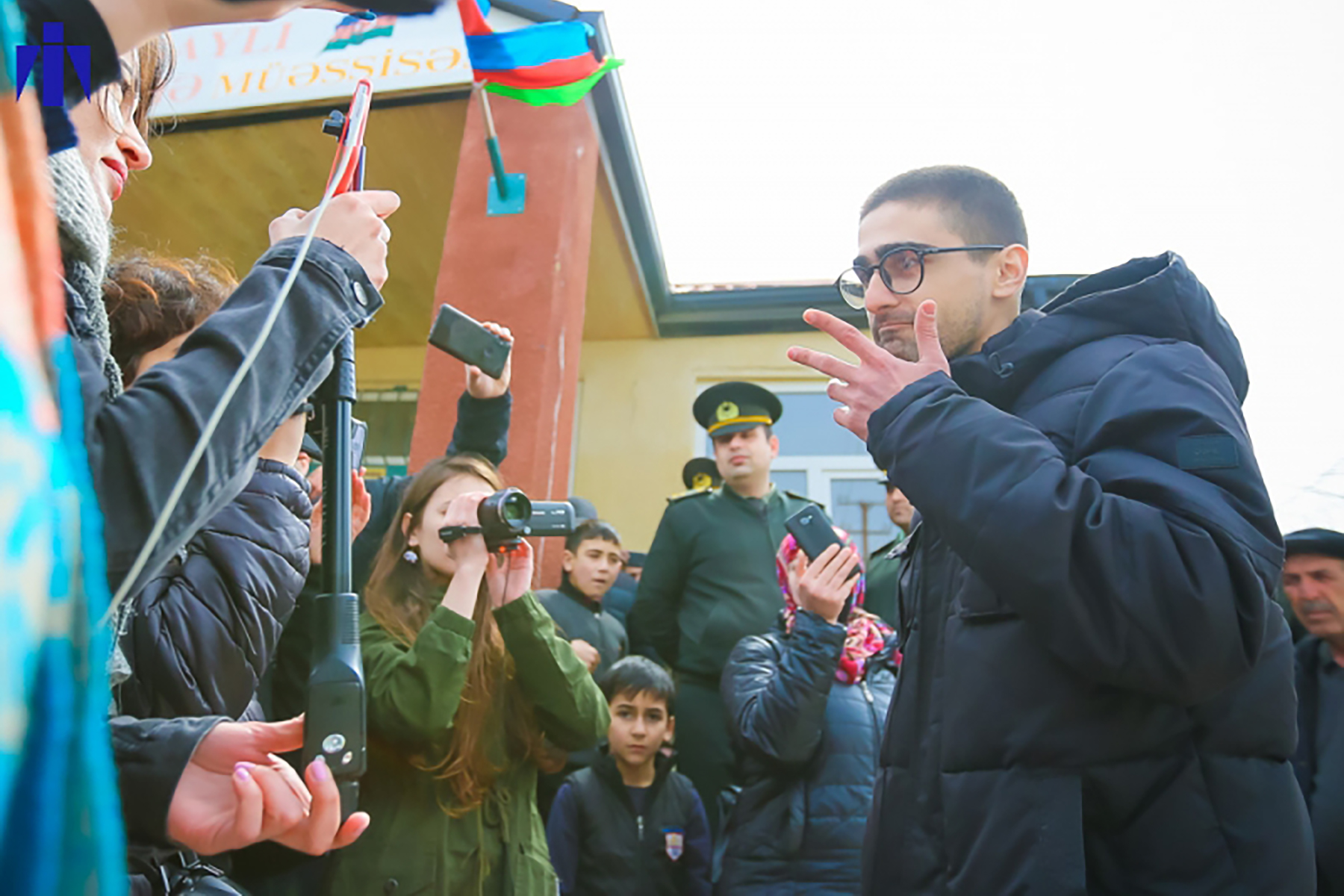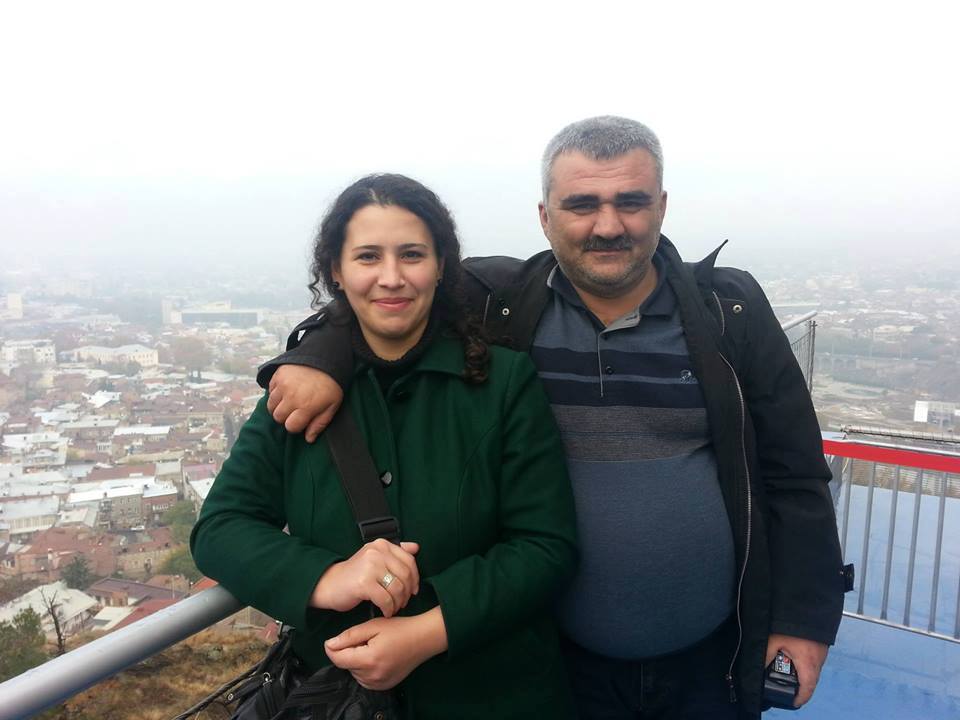
Almost 400 prisoners have been released in Azerbaijan after President Ilham Aliyev issued an amnesty to mark the Novruz holiday. Fifty-two of those receiving pardons are widely considered by rights groups and international organisations to be political prisoners.
Although previous amnesties have included people considered political prisoners, the number included in this year’s amnesty was higher than in previous instances. According to local rights groups, the last amnesty, signed in May 2018, included only 12 political prisoners.
According to the latest report by the Working Group on a Unified List of Political Prisoners in Azerbaijan, made up of local activists, journalists, and civil society groups, there were 127 political prisoners in the country as of 20 February.
According to the BBC’s Azerbaijani service, a list by the Centre for the Protection of Political Prisoners, a local rights group, included 137 people.
A spokesperson for the EU’s Foreign Policy Chief, Federica Mogherini, hailed the release of ‘representatives of political parties, NGOs, bloggers and journalists’ in a statement, calling it a ‘welcome step’.
‘The European Union expects that further similar steps will follow in future in line with Azerbaijan's international commitments’, the spokesperson added.
International rights groups including Amnesty International, Freedom House, and Human Rights Watch also welcomed the move, but said that other political prisoners remained behind bars and should be released.
‘I am grateful to those who defend my freedom’
The list of the 52 political prisoners who were pardoned was met with mixed views in Azerbaijan.
Many in the media and on social media thanked the president for the amnesty, but others wrote that they should never have been arrested for unjustified, political activities or voicing their opinions.
Some of those released said they should not show gratitude towards the same government that imprisoned them in the first place.
One of those to be released was Ilkin Rustamzade, a member of pro-democracy youth movement N!DA. Rustamzadeh told OC Media that his release came as a surprise but that he was not grateful to the authorities.
‘Eight-year sentences in Azerbaijan are given for grave charges, such as deliberate murder and drug trafficking. I was convicted because of the accusations against me. And everyone knows that I was wrongly imprisoned. Therefore, I am not grateful to anyone that I was released. I am grateful to those who defend my freedom.’
Rustamzade was initially arrested and charged with hooliganism in May 2013, for his alleged involvement in filming a satirical ‘Harlem Shake’ video in Baku. He was later charged and convicted of inciting violence and organising mass disorder, for organising a protest in March against a spate of deaths of conscripts in the Azerbaijani armed forces. In May 2014, he was sentenced to eight years in prison.
Rufat Safarov, a former prosecutor’s office official who spoke out against human rights abuses by the government was also among those pardoned.
In 2016, Safarov, the son of Eldar Sabiroghlu, one of the founders of the ruling New Azerbaijan Party, was sentenced to nine years in prison on charges of bribery, fraud, and human rights violations.
Safarov’s parents told local media that they were grateful to the president for the release of their son, but Safarov told OC Media that his position was different from his parents.
‘I am grateful to the members of the committee to protect my rights, my lawyers, human rights activists, and members of the independent press, and I do not have to thank anyone else for this’, Safarov said.
Safarov said that some of those who were imprisoned on politically-motivated charges were happy about the release, but that many regarded it as an incomplete step ‘because there are still political prisoners in jail’.
‘In order to free the other political prisoners, society must continue an active struggle’, he added.

Missing from the list
Fuad Ahmadli, an imprisoned member of the opposition Popular Front Party, was not on the list of pardoned prisoners.
Ahmadli was arrested in August 2016 accused of transferring personal information to clients using technology at the Azerfon telecommunications company, where he worked, as well as for having illegal religious literature in his home.
He was sentenced to four years in prison by the Baku Court of Grave Crimes in June 2017.
Ahmadli’s father, Zafar Ahmadov, told OC Media that he had hoped his son would be released.
‘Initially, information was leaked to us that Fuad would also be released. Perhaps this information was deliberately leaked. But it is clear that it is difficult to know who in the country will be released in advance. So we were expecting everything to happen. But there was hope. It is impossible to live without hope.’
Ahmadov says that this amnesty did not meet his expectations and that the amnesty was only for show.
‘Fifty-one political prisoners were released. Again, at least 50 [political prisoners] are awaiting a court verdict.’
‘There is still no sense of [the government] softening. We are a long way away from resolving the problem of political prisoners’, Ahmadov added.
Another name that was not among those pardoned was investigative journalist Afgan Mukhtarli.
Mukhtarli was abducted in May 2017 in Tbilisi and later sentenced by a court in Baku to six years in prison on charges of smuggling money, illegal border crossing, and endangering border guards.
[Read on OC Media: The Afgan Mukhtarli case: an investigation stalled?]
His wife, journalist Leyla Mustafayeva, told OC Media that she had no expectations that Mukhtarli would be released. She said that precedence showed that the authorities rarely released people who had spent less than three or four years in prison.
‘The authorities will take revenge on him by keeping him in prison for as many years as possible’, she said.

Mustafayeva said she believed that those released in the amnesty would be replaced in prison by others who would be arrested on politically motivated charges.
‘Many political prisoners were released. But still, political prisoners remain. It is expected that nearly 50 prisoners will again be placed on the list of political prisoners. In fact, the figure will again rise to the previous figure. It seems that the Azerbaijani government has a political prisoner quota, and this quota will always be full.’
‘The Azerbaijani government does not intend to address this issue systematically’, Mustafayeva said.
[Read on OC Media: A government’s fear or bargaining chips — Political prisoners in Azerbaijan]
An incomplete step
Human rights activist Ogtay Gulaliyev, a coordinator at the Centre for the Protection of Political Prisoners, told OC Media that the amnesty was an incomplete step, even though it was larger than previous amnesties in terms of the number of political prisoners released.
‘This decree did not fully solve the problem of political prisoners in Azerbaijan. But it was a step towards solving the problem’, Gulaliyev said.
He said that all political prisoners in the country must be released and that the ‘policy of imprisoning them and subjecting them to repression’ must end.
Gulaliyev added that the government needed to make significant reforms in this area. ‘The legislative base should be improved. The judicial system must be independent. The process itself should be transparent’, he said.
Rasul Jafarov, the head of local rights group the Human Rights Club, told OC Media that the amnesty was simply one of the legal mechanisms in the hands of the authorities, who themselves have not resolved the issue of political prisoners.
According to him, the fact that 52 political prisoners were pardoned ‘creates probabilities that other political prisoners will also be released’.
He said that while the amnesty had been received positively, it did not eliminate the problem of political prisoners, as ‘there are political prisoners in prisons’.
‘All political prisoners should be released. At the same time, the practice of political persecution should be abolished. A strict political will must be put in place that no one should be persecuted in Azerbaijan for their political position or different opinions and criticisms, that no one will be imprisoned on false accusations’, he said.
‘We continue our call to release other political prisoners as soon as possible’, Jafarov added.
Representatives of the ruling New Azerbaijan party, MPs, and pro-government media linked the amnesty to the president’s policy of ‘mercy and humanism’.
Aydin Mirzazade, an MP from the New Azerbaijan Party, told the BBC’s Azerbaijani service that ‘whether or not someone else's political affiliation, whether or not someone else is in the list’, was not important for Aliyev.
‘The prisoners, who repent what they did and who are not dangerous to society, have been released through the pardoning commission’, Mirzazade said.
Details of the amnesty
Aliyev has regularly signed amnesties and individual pardons in the run-up to holidays during his presidency.
The latest Novruz amnesty affected a total of 431 people. According to the decree, 399 people currently serving time in prison are set to be released. Three men sentenced to life imprisonment had their sentences reduced: one to 25 years and two to 20 years.
One person who was yet to carry out their sentence had their sentence commuted while 11 people had suspended sentences lifted.
One person sentenced to a restriction of liberty was released from the remainder of their term. Three people sentenced to correctional labour, one to community service, as well as 12 people issued with fines had their sentences lifted.




 20 March 2019
20 March 2019


